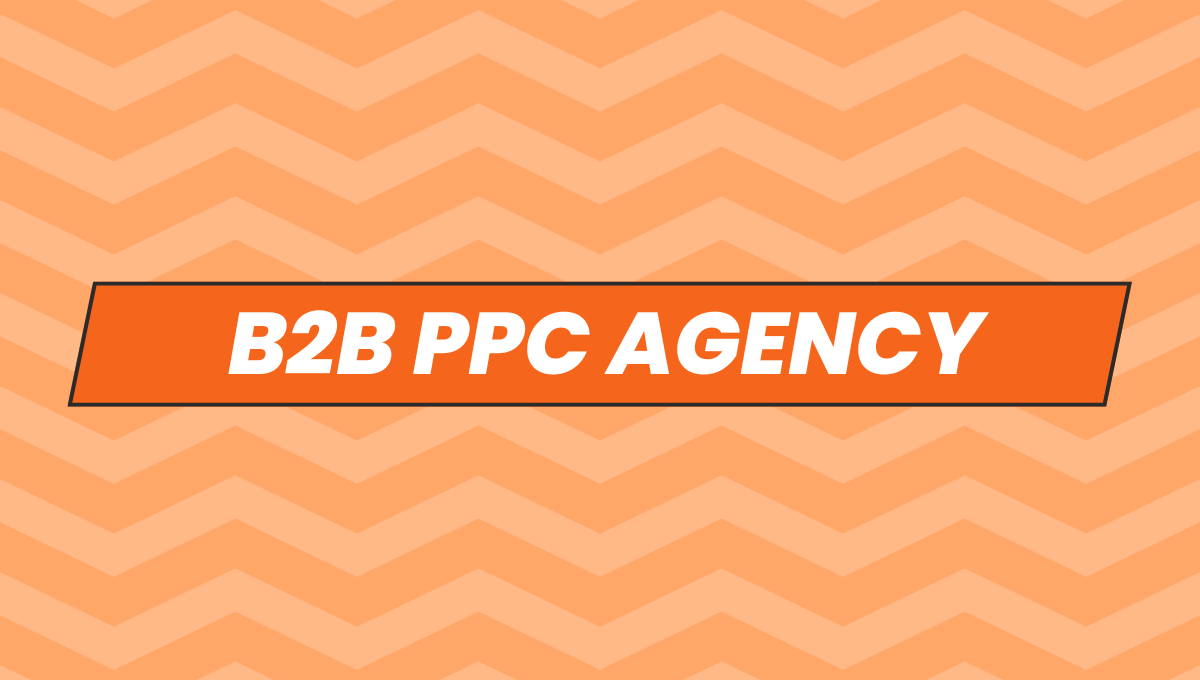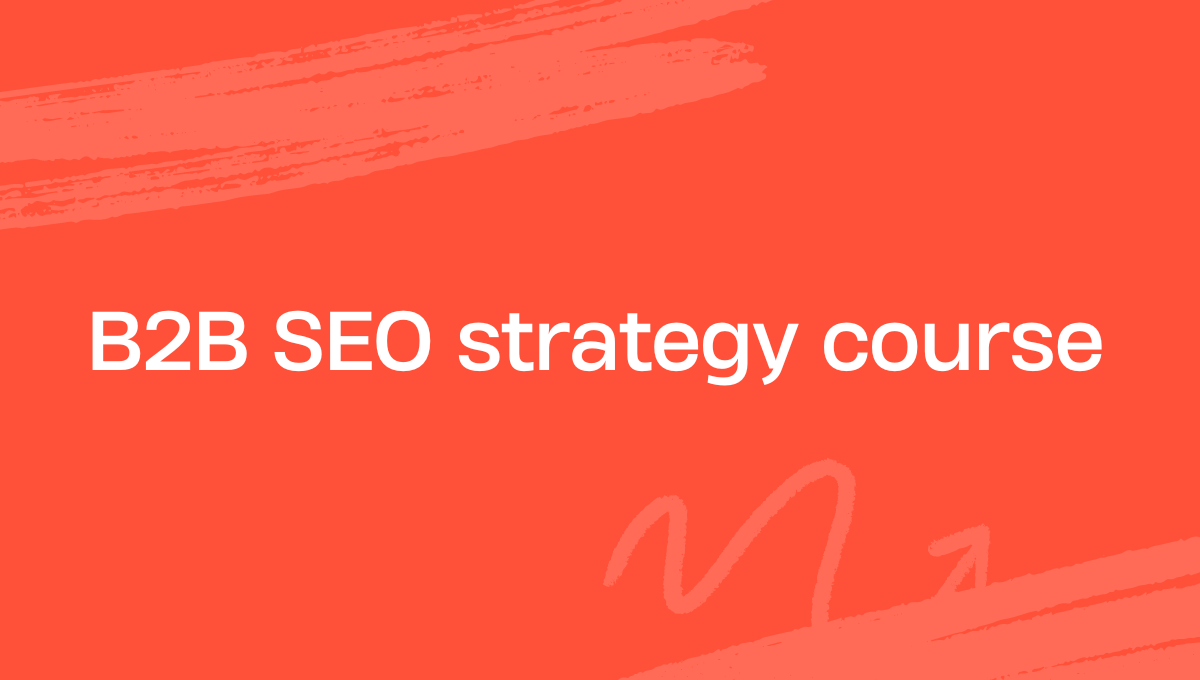Marketing & Analytics
An Overview of Account Based Marketing
Published
3 years agoon
By
Marks StrandWhen it comes to B2B sales, ABM engagement has been one surefire way to increase revenue thanks to AI for sales prospecting. ABM, in full account-based marketing, is a focused growth strategy that seeks to create personalized buying experiences for a mutually identified set of accounts.
The idea behind ABM is beginning the sales process by selling directly to your best-fit, highest value accounts. There will be no more wasted time trying to market products to unqualified leads who aren’t the right fit for your business.
Eliminating that hustle takes you straight to engaging and quite possibly delighting your target accounts.
How to Go About ABM
To get the best out of an ABM approach, follow this pseudocode:
Create Alignment Between Your Sales and Marketing Teams
Sales and marketing are a crucial partnership. To run any effective ABM implementation, the two must be aligned. The reason for this is to give customers a seamless transition from being identified as a lead to the sale being made.
To improve this sales-marketing partnership, both teams must come together and commit to finding a clear common middle-ground to ensure the marketing team is acquiring leads from trusted referrals or otherwise that the sales team can now sell to.
Conduct Research to Determine Account Personas
After the sales and marketing teams have their interests aligned, the next step is working together to ensure only the correct personas are targeted.
Typically, this begins with a period of research to identify which accounts to further pursue. As a marketer, this is what you should consider in ABM engagement:
- The mission, vision and objectives of the ideal customer.
- The current stage of business maturity in terms of size and growth trajectory.
- Revenue model and spending patterns.
- The tools and platforms the ideal customer is using.
You know what they say about skinning a cat so what’s most important is that the marketing and sales teams agree which accounts to target.
Create Account Plans
After determining which accounts to target, it’s now time to build account plans. This part involves the teams working together to map out potential leads they’ll need to reach their target accounts and what content they’ll need to produce to engage with said accounts.
Here is what you need to keep in mind when creating account plans:
- Each plan should be tailored to the needs of that particular account, although account plans for customers in the same segment can have similarities.
- Each account plan should essentially address two questions: who is included in the buying decision for this sale and what content is needed for each member of this buying committee.
Segmenting can be a great strategy, especially when done right. You can identify common traits among some of your customers and group them. These may include location, budget, niche and so on.
Segmenting is particularly useful if you are dealing with many accounts.
Attract Contacts Associated With Target Accounts
Inbound methodology will help you attract contacts associated with your target accounts. In the event that you need additional contacts, your next step determines where your ideal contacts are currently going to find solutions related to what you offer and make sure your company is visible and represented in these spaces.
Great places to get contacts include trusted referrals, events, publications as well as targeted ad placements. As tempting as using all these channels is, only prioritize the channels that are most relevant to your target accounts and contacts.
Get the Buying Committee Involved
The last step of this AI for sales prospecting application is getting the buying committee involved. As you build relationships with key contacts, make sure both sales and marketing teams actively engage everyone involved in the buying decision.
You may like
Business Solutions
Choosing the Right B2B Digital Marketing Agency: A Guide
Published
4 months agoon
January 31, 2025By
Dev Dev
In today’s competitive business landscape, a strong online presence is no longer a luxury, but a necessity. For B2B companies, a well-executed digital marketing strategy can significantly impact lead generation, brand awareness, and ultimately, revenue growth. However, navigating the myriad of agencies can be daunting. Here’s a guide to help you choose the right B2B digital marketing agency for your business:
1. Define Your Goals and Objectives:
Clearly articulate your marketing goals: What are you trying to achieve? Increase brand awareness? Generate leads? Drive website traffic? Improve customer engagement?
Identify your target audience: Who are you trying to reach? What are their demographics, interests, and online behaviors?
Set realistic and measurable KPIs: How will you track the success of your marketing campaigns? Examples include website traffic, conversion rates, lead generation, and return on investment (ROI).

2. Research and Shortlist Potential Agencies:
Conduct thorough online research: Explore agency websites, read client testimonials, and check online reviews on platforms like Google My Business, Clutch, and G2.
Look for industry specialization: Choose an agency with experience in your specific industry. Industry-specific knowledge can significantly impact the effectiveness of your campaigns.
Assess their portfolio: Review their past work and case studies to understand their capabilities and the quality of their deliverables.
- Evaluate Agency Expertise and Experience:
Inquire about their services: Does the agency offer the specific services you need? (e.g., SEO, PPC, social media marketing, content marketing, email marketing, lead nurturing)
Assess their team’s expertise: Look for experienced professionals with proven track records in digital marketing.
Inquire about their data-driven approach: How do they analyze data to optimize campaigns and measure ROI?
4. Consider Communication and Collaboration:
Schedule a consultation: Meet with the agency to discuss your business needs, goals, and budget.
Assess their communication style: Ensure they are responsive, proactive, and transparent in their communication.
Discuss project management and reporting: How will they keep you informed about campaign progress? What kind of reports will they provide?
5. Evaluate Pricing and Contracts:
Obtain detailed proposals: Request detailed proposals outlining the scope of work, pricing, and payment terms.
Compare pricing models: Consider different pricing models such as project-based, retainer-based, or performance-based.
Review the contract carefully: Pay close attention to the terms and conditions, including service level agreements, intellectual property rights, and termination clauses.
6. Build a Strong Partnership:
Maintain open and consistent communication: Regularly communicate with your agency to discuss campaign performance, provide feedback, and address any concerns.
Foster a collaborative relationship: Work closely with your agency as a team to achieve your marketing goals.
Regularly review and adjust your strategy: Continuously analyze campaign data and make necessary adjustments to optimize performance.
By following these steps, you can increase your chances of finding a B2B digital marketing agency that aligns with your business needs and helps you achieve your marketing goals.
Business Solutions
B2B Digital Marketing Services for SaaS Companies: Nuances and Considerations
In the fast-evolving world of Software as a Service (SaaS), digital marketing stands as a cornerstone for success. As SaaS companies strive to reach their target audiences and differentiate themselves in a competitive market, the role of a B2B PPC Agency becomes increasingly vital. These agencies bring specialized expertise in crafting and executing pay-per-click campaigns that can propel a SaaS business to new heights. However, navigating the digital marketing landscape for SaaS is not without its challenges and opportunities. From budget constraints to targeting the right decision-makers, each aspect requires careful consideration and a strategic approach. In this blog, we’ll delve into the nuances of B2B digital marketing services tailored for SaaS companies, exploring key strategies and considerations that can unlock potential and drive growth.
Published
8 months agoon
September 17, 2024By
Adva
SaaS companies operate in a highly competitive digital landscape. To stand out and generate leads, effective B2B digital marketing is essential. Here’s a breakdown of key services and considerations for SaaS companies seeking to boost their online presence.
Core B2B Digital Marketing Services for SaaS Companies
- Content Marketing: Creating high-quality content like blog posts, whitepapers, and case studies to attract and educate potential customers.
- Search Engine Optimization (SEO): Optimizing website content and structure to improve search engine rankings and drive organic traffic.
- Pay-Per-Click (PPC) Advertising: Running targeted ad campaigns on platforms like Google Ads and LinkedIn to generate leads quickly. Contact Inter Dev, a leading B2B PPC Agency.
- Social Media Marketing: Building and engaging with an audience on platforms like LinkedIn and Twitter to establish thought leadership and generate leads.
- Email Marketing: Nurturing leads with targeted email campaigns to drive conversions.
- Webinars and Events: Hosting webinars and online events to showcase products, generate leads, and build relationships.

Nuances of SEO for SaaS Companies
- Keyword Research: Focus on long-tail keywords that reflect specific user intent and are less competitive.
- Technical SEO: Ensure your website is optimized for technical factors like page speed, mobile-friendliness, and proper indexing. Inter Dev’s SEO services include thorough technical SEO audits.
- Backlink Building: Acquire high-quality backlinks from authoritative websites in your industry to improve your domain authority.
- Local SEO: If you serve a specific geographic area, optimize your website for local search.
- Content Marketing Integration: Create valuable content that aligns with your SEO strategy and targets relevant keywords.
What to Look for in a B2B Digital Marketing Agency
- Industry Experience: Look for an agency with experience working with SaaS companies.
- Data-Driven Approach: Ensure the agency uses data and analytics to measure performance and make informed decisions.
- Proven Track Record: Ask for case studies and references from previous clients.
- Communication and Collaboration: Choose an agency that is responsive, collaborative, and aligned with your business goals.
- Scalability: Select an agency that can scale their services as your business grows.
By partnering with a reputable B2B digital marketing agency, SaaS companies can effectively leverage online channels to generate leads, drive customer acquisition, and achieve long-term success.
Business Solutions
Mastering B2B SEO: A Comprehensive Strategy Course
Are you tired of your B2B website getting lost in the digital abyss? Do you want to increase your online visibility and drive more qualified leads to your business? Look no further! Our comprehensive strategy course on mastering B2B SEO is here to help you take control of your online presence and dominate the search engine rankings. Join us as we dive deep into proven tactics and techniques that will elevate your B2B SEO game to new heights. Say goodbye to obscurity and hello to success with our expert guidance. Let’s turn those clicks into conversions together!
Published
1 year agoon
February 25, 2024By
Adva
In today’s digital marketplace, a robust B2B SEO strategy is not just beneficial—it’s essential for businesses looking to enhance their online visibility and drive targeted leads. Recognizing this need, the development of a B2B SEO strategy course aims to equip businesses with the knowledge and tools necessary to navigate the complexities of SEO in the B2B sector. This comprehensive guide delves into the nuances of SEO for B2B, offering a strategic roadmap for businesses ready to elevate their online presence.
The Fundamentals of SEO for B2B
SEO, or Search Engine Optimization, serves as the cornerstone of digital marketing, particularly in the B2B realm where purchasing decisions are often researched extensively online before any engagement. Unlike B2C SEO, which may focus on broad appeal and quick conversions, B2B SEO strategies are tailored to a more specific, informed audience, often involving longer sales cycles and a need for detailed, technical content.
Understanding the fundamentals of SEO—such as keyword research, on-page optimization, and link building—is crucial. However, applying these principles within a B2B context requires a nuanced approach that considers the unique behaviors, needs, and challenges of business clients.
Understanding Your B2B Audience
The success of any B2B SEO campaign hinges on a deep understanding of your target audience. B2B buyers are typically well-informed, seeking detailed and technical information to inform their purchasing decisions. Effective audience research involves identifying the specific industries, job roles, and professional challenges that your SEO content will address.
Segmentation plays a key role here, allowing businesses to tailor their SEO efforts to different segments of their audience. Techniques such as analyzing industry forums, conducting surveys, and leveraging LinkedIn analytics can provide valuable insights into the content preferences and search behaviors of your target market.

Keyword Research for B2B SEO
Keyword research is the foundation of any successful SEO strategy, guiding the creation of content that meets the search intent of your target audience. For B2B businesses, this means focusing on long-tail keywords that reflect the specific, often technical queries of professional searchers.
Utilizing tools like Google’s Keyword Planner, Ahrefs, or SEMrush can help identify these niche keywords. The goal is to find terms that not only have a decent search volume but are also highly relevant to the products or services offered, ensuring that the traffic driven to your site is qualified and likely to convert.
On-Page SEO Strategies for B2B Websites
On-page SEO for B2B websites involves optimizing individual web pages to rank higher in search engines and earn more relevant traffic. This includes the strategic use of keywords in titles, headings, and throughout the content, as well as optimizing meta descriptions to encourage clicks from search engine results pages (SERPs).
Moreover, B2B websites must ensure that their content not only ranks well but also provides value to their professional audience. This means creating detailed, authoritative content that addresses specific industry issues, trends, or questions, thereby enhancing the site’s relevance and authority.
Technical SEO Considerations for B2B
Technical SEO is critical for ensuring that a B2B website is accessible, crawlable, and understandable for search engines. Key considerations include ensuring fast loading speeds, a mobile-friendly design, and secure connections via HTTPS. Additionally, structured data markup can help search engines better understand and display your content in the SERPs, potentially improving visibility.
Regular technical audits using tools like Google Search Console or Screaming Frog can help identify and rectify issues that may hinder your site’s performance, ensuring that your B2B SEO efforts are built on a solid foundation.
Content Marketing and SEO Synergy
In the B2B sector, content marketing and SEO are intrinsically linked. High-quality, SEO-optimized content is a primary driver of search engine rankings, attracting organic traffic and engaging potential clients. B2B content strategies should focus on creating comprehensive resources, thought leadership articles, and case studies that demonstrate industry expertise and address the specific needs of your target audience.
Leveraging various content formats, from blog posts to whitepapers and webinars, can help cover a broader range of keywords and topics, enhancing your SEO performance and establishing your brand as a trusted authority in your industry.
Link Building Tactics for B2B Websites
Link building is essential for enhancing a B2B website’s domain authority and search visibility. However, ethical and effective link-building practices are paramount, focusing on earning links through high-quality content, industry partnerships, and guest blogging opportunities.
Networking within professional circles and contributing valuable insights to industry discussions can also lead to natural backlinks, further bolstering your SEO efforts. Remember, the quality of links is far more important than quantity in the B2B context, where relevance and authority are key.
Measuring and Analyzing B2B SEO Performance
Tracking the success of a B2B SEO strategy is crucial for understanding its impact and identifying areas for improvement. Key performance indicators (KPIs) such as organic traffic, keyword rankings, conversion rates, and lead quality should be monitored regularly using tools like Google Analytics and HubSpot.
Analyzing this data allows businesses to refine their SEO strategies, focusing on the tactics that deliver the best results and adjusting those that underperform. Continuous analysis and optimization are essential for maintaining and improving your B2B SEO performance over time.
Advanced B2B SEO Techniques and Trends
Staying abreast of the latest SEO techniques and trends is vital for keeping your B2B marketing strategy competitive. Emerging technologies like AI and voice search are shaping the future of SEO, influencing how content is created and consumed. Additionally, the growing importance of local SEO and video content offers new opportunities for B2B businesses to connect with their audience.
Adopting a forward-thinking approach to SEO, experimenting with new tactics, and leveraging the latest tools can help your business stay ahead in the ever-evolving digital landscape.
Implementing Your B2B SEO Strategy: A Step-by-Step Course
For businesses looking to deepen their understanding of B2B SEO and implement a successful strategy, enrolling in a B2B SEO strategy course can be incredibly beneficial. Such a course offers a structured approach to SEO, covering everything from the basics to advanced techniques, and providing practical insights into using tools like HubSpot to enhance your SEO efforts.
A comprehensive course not only equips you with the knowledge to optimize your B2B website but also offers ongoing support and resources to ensure your SEO strategy continues to evolve and succeed.
SEO is a critical component of any B2B marketing strategy, driving visibility, engagement, and conversions in the digital age. By understanding the unique aspects of B2B SEO, leveraging the right tools, and continuously optimizing your efforts, your business can achieve significant online success. Investing in a B2B SEO strategy course is a valuable step toward mastering the complexities of SEO and ensuring your business stands out in a crowded digital marketplace.
FAQs on B2B SEO Strategy Course
- What is a B2B SEO strategy course? A B2B SEO strategy course is a structured educational program designed to teach businesses how to effectively optimize their online presence to attract and engage other businesses through search engines. It covers various aspects of SEO, including keyword research, on-page optimization, link building, and analytics, tailored specifically for the B2B market.
- Who should enroll in a B2B SEO strategy course? Marketing professionals, business owners, content creators, and anyone responsible for the online marketing efforts of a B2B company can benefit from enrolling in a B2B SEO strategy course. It’s particularly useful for those looking to enhance their digital marketing skills or implement SEO strategies to drive more targeted traffic and leads.
- How does SEO for B2B differ from SEO for B2C? SEO for B2B focuses on targeting businesses as customers, which often involves longer sales cycles, a smaller, more niche audience, and more complex products or services. B2B SEO strategies typically require more detailed content, a focus on industry-specific keywords, and a greater emphasis on building authority and trust.
- What key topics are covered in a B2B SEO strategy course? A comprehensive B2B SEO strategy course covers topics such as understanding B2B buyer behavior, conducting effective keyword research, optimizing website and content for B2B audiences, building quality backlinks, utilizing SEO tools and analytics, and staying updated with the latest SEO trends and algorithms.
- Can I implement an SEO strategy on my own after completing the course? Yes, a well-structured B2B SEO strategy course should equip you with the knowledge and tools necessary to develop and implement an effective SEO strategy on your own. However, ongoing learning and adaptation to new SEO trends and updates are crucial for long-term success.
- How long does it take to see results from a B2B SEO strategy? SEO is a long-term investment, and it can take several months to see significant results, especially in competitive industries. Consistency, quality content, and adherence to best practices are key to improving rankings, increasing traffic, and generating leads over time.
- Are there any prerequisites for enrolling in a B2B SEO strategy course? While there are no strict prerequisites, having a basic understanding of digital marketing concepts and familiarity with how search engines work can be beneficial. The course is designed to accommodate both beginners and those with some experience in SEO.
- How can I measure the success of my B2B SEO efforts? Success can be measured using various metrics, including organic traffic, search engine rankings for targeted keywords, conversion rates, lead quality, and overall ROI. Most B2B SEO strategy courses will teach you how to use analytics tools to track these metrics effectively.
- Will the course cover the use of SEO tools? Yes, most B2B SEO strategy courses will introduce you to essential SEO tools for keyword research, on-page optimization, link building, and analytics. These tools are crucial for implementing and managing your SEO strategy efficiently.
- How can I stay updated with the latest B2B SEO trends and algorithms? Staying updated with SEO trends and algorithm changes is vital for maintaining and improving your SEO performance. Reputable SEO blogs, forums, webinars, and continuous learning courses are great resources for keeping abreast of the latest developments in the SEO world.

Drone-UAV RF Communication: The Backbone of Modern Aerial Operations

OTP Verification at Scale with VoIP Smart Support

From Cloud to Edge: Object Detection Gets an Upgrade
Trending
-
Marketing & Analytics2 years ago
A Complete Guide To HubSpot’s New B2B Marketing, Sales Hub, and Prospecting Tool
-
3D Technology2 years ago
3D Scanner Technology for Android Phones: Unleashing New Possibilities
-
Marketing & Analytics2 years ago
How SMS Services And Software For Bulk SMS Sending Can Help Your Business Grow
-
3D Technology2 years ago
Mobile 3D Scanners: Revolutionizing 3D Scanning Technology
-
3D Technology3 years ago
3D scanning technologies and scanning process
-
Business Solutions1 year ago
Understanding A2P Messaging and the Bulk SMS Business Landscape
-

 Business Solutions1 year ago
Business Solutions1 year agoThe Power of Smarts SMS and Single Platform Chat Messaging
-

 Automotive2 years ago
Automotive2 years agoDSRC vs. CV2X: A Comprehensive Comparison of V2X Communication Technologies




